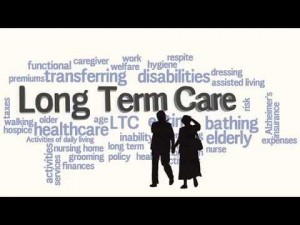Ask someone what they think about long-term care and you’ll hear a range of responses such as “I have insurance for that” or “I don’t want the nursing home to take all my money.” Unfortunately, many of these responses are based on false ideas which can result in more fear and anxiety about long-term care.
Some of the more common misconceptions include believing Medicare will cover the costs of long-term care, giving away money to family members before entering a nursing home to protect the assets and the belief that owning insurance is the same as having a plan.
One of the major limitations with Medicare health insurance is that it does not provide any benefits for long-term care (defined as care needed in excess of 100 days). For shorter stays in a nursing home (typically for rehab or acute medical conditions), Medicare may cover the cost which is why some people mistakenly assume that Medicare also pays for longer stays in a nursing home. Medicare supplement policies also do not pay for extended stays in long-term care facilities.
Another strategy (that worked in the past albeit with major caveats) is to give away assets prior to entering a nursing home through a technique called “divestment.” While this approach can still be used with careful planning far in advance of needing care (typically at least five years), it still results in surrendering control of your property in order to qualify for Medicaid. The Medicaid program (separate and distinct from Medicare) is more of a last resort option than the preferred strategy for covering long-term care expenses.
Unless you rely on family or qualify for Medicaid, the two other options for covering long-term care expenses are insurance and using your own financial resources. Just because you have long-term care insurance, does not mean you have a plan for how long-term care will be delivered. Most policies sold today only cover a limited amount of care so thought needs to be given to what happens if an insurance policy is exhausted.
More importantly, thought needs to be given to what your preferences are for how care will be delivered. Will it be at home, an assisted living facility or a nursing home? Of course, you cannot predict the exact outcome of your long-term care needs (or whether you’ll even need care) but you can start a discussion now with the people who might be involved in helping to coordinate your care needs in the future.




